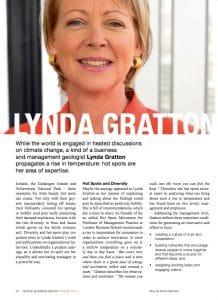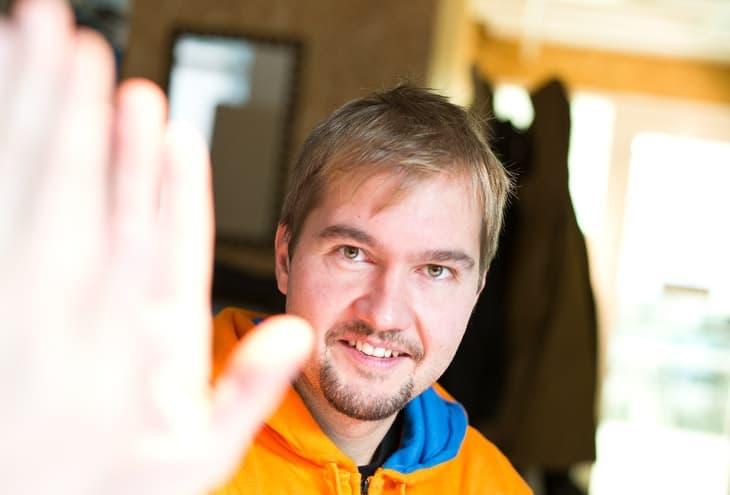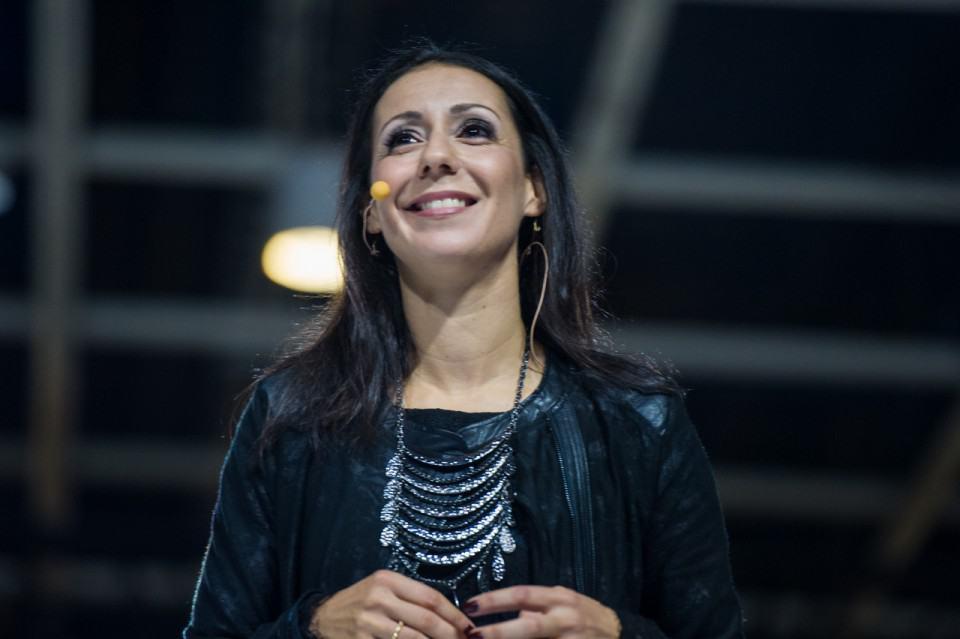16Aug2013
by Kristal Davidson
While the world is engaged in heated discussions on climate change, a kind of a business and management geologist Lynda Gratton propagates a rise in temperature: hot spots are her area of expertise.
Iceland, the Galápagos Islands and Yellowstone National Park – three examples for what beauty hot spots can create. Not only with their geysers spectacularly letting off steam, their brilliantly coloured hot springs or bubbly mud pots lazily presenting their damped explosions, but also with the rich diversity in flora and fauna which grows on the fertile volcanic soil. Diversity and hot spots play important roles in Lynda Gratton´s work and publications on organizational behaviour. Undoubtedly a prudent analogy, as it allows her to spell out her plausible and motivating messages in a powerful way.
Hot Spots and Diversity
Maybe the analogy appealed to Lynda Gratton as her manner of explaining and talking about her findings could also be described as positively bubbly. She is full of recommendations, which she is keen to share. As founder of the so called Hot Spots Movement the Professor of Management Practice at London Business School recommends a rise in temperature for companies in order to achieve innovation. In most organisations everything goes on at a mellow temperature on a routinely day to day basis. “But every now and then you find a place and a time where there is a great deal of energy and excitement within and around a team,” Gratton describes her observations and continues: “The minute you walk into the room you can feel the heat.” Therefore she has spent several years on analysing what can bring about such a rise in temperature and has found hints on two levels: management and employee.
Addressing the management level, Gratton defines three important conditions for generating an innovative and effective buzz:
- creating a culture of trust and cooperation,
- building networks that encourage diverse people to come together and that become a source for different ideas, and
- designing exciting tasks and engaging visions.
This particularly applies to companies which are mainly knowledge based and whose main assets therefore are knowledge and human capital. According to Gratton, though, most companies are good in one or maybe two of these conditions, but not in all three of them. However, a culture of cooperation and collaboration is absolutely crucial for building innovative hot spots. This means providing an environment in which diverse people – meaning diverse in gender, age, nationality, specialization – appreciate and trust each other and in which they are able to resolve conflicts. Spelling out values and mission statements is not enough, though.
Giving Gifts Is Valuable
How people actually behave on a day to day basis is far more decisive: “Many companies have ambitious values, but nobody ever does anything to fulfill them.” CEOs often prove to have visions or strategies. But they should not focus on that alone. One aspect, which according to Gratton is far too underestimated, is the language or narrative: “By using a language of cooperation with terms such as `we´, `team´, `colleagues´ or `inclusion´, the senior leaders are basically describing in a linguistic way, what they want the company to be like.” Whereas battlefield analogies like `fight´ or `struggle´ discourage cooperation.
The second aspect Gratton mentions, is mentoring and coaching. Actively mentored and coached by senior executives, people live a cooperative culture. “The gift in coaching and mentoring is the gift of time and attention,” Gratton explains, “both are very valuable in a corporation.”
Employees Make Their Own Choices
However, Gratton also addresses the employee level. In her opinion it is not the job of CEOs to create purposeful lives for them: “They can give them work that is meaningful and they can make a connection between what an employee does and what goals the company wants to achieve apart from increase in turnover; but in the end people have to find their own purpose.” Nevertheless – and this she stresses particularly – an organisation can build interesting work with autonomy and independence, with good feedback and coaching, with rotation and responsibilities on top of fair payment. Unnecessary bureaucracy in her opinion should be eliminated; instead employees should be given tasks that are really necessary. “A lot of bureaucracy is based on the fact that people do not trust each other and that they are still using hierarchy,” Gratton states. Instead the role of the CEO should lay in orchestration. This means being cool in general and heating things up from time to time by creating hot spots whenever and wherever necessary. This certain degree of coolness is essential as it lies within the nature of volcanic hot spots, that most of the processes going on inside are not visible from the outside above. If corporations set exciting tasks and bring dedicated people together in diverse teams and networks, if they create open innovation platforms, where ideas can be shared safely, then diverse ideas can boil and bubble for a while within the hot spot and finally erupt in an important innovation.
Turning Things Inside Out
The more complex a task, the more diverse a team needs to be. The more diverse a team becomes, the higher its level of potential innovation and heat. But the more diverse a team, the more complex its management becomes, too. Gratton invites executives not to fear the heat. Nevertheless she is turning her eyes towards cooler regions now. She has found out, that more and more corporations are not only thinking about what is going on inside them. They seek to balance inside and outside and anchor themselves in their community. Avoiding the term Corporate Social Responsibility Gratton speaks about how corporations should use their skills in order to address big social problems, such as youth unemployment or climate change. “A corporation cannot build resilience by merely focusing on its inside, it has to build resilience in its outside world,” Gratton points out. Only then volcanic eruptions can make the corporation stronger instead of weaker by spitting out innovations and fertile soil for a flourishing future.
BIO
Lynda Gratton is the Professor of Management Practice at London Business School. She has written several books on organizational behaviour, partly based on her experience as Chief Psychologist at British Airways and as Human Resources Director for PA Consulting Group. In 2011 The Times ranked her as one of the top 15 Business Thinkers in the world today.
This article is from the August 2013 issue of Nordic Business Report. Read the full magazine here »

 by:
by: 


